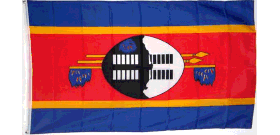 Oshoek Border Post Suspends Operations: Safety Measures and Alternate Entry Points
Oshoek Border Post Suspends Operations: Safety Measures and Alternate Entry Points
The South African Border Management Authority (BMA) and the South African Revenue Service (SARS) have announced a temporary suspension of operations at the Oshoek Border Post, a key crossing route between South Africa and eSwatini. This follows a serious road incident on 26 January 2025 involving a 32-ton coal truck. The temporary halt aims to ensure the safety of all stakeholders and facilitate the ongoing investigation by the South African Police Service (SAPS).
In the wake of the accident, officials deemed it necessary to close the Oshoek Border Post to collect evidence, capture photographs, and conduct an in-depth inspection of the site. As a result, Disaster Management teams have been mobilized to carry out safety assessments. Operations at the border will remain suspended until these teams give clearance, ensuring no residual risks to personnel or travelers.
For African travel agents and cargo transporters, the closure of such a strategic border crossing has considerable implications, particularly for vehicle-based tourism as well as freight activities. The interruption comes at a time when internal African travel and trade remain pivotal to economic development efforts. However, the BMA and SARS are committed to balancing the swift resolution of this issue with the prioritization of passenger and staff welfare.
In response to this disruption, authorities have directed visitors and transporters toward alternative Ports of Entry linking South Africa and eSwatini. These include Nerston (Sandlane), Mahamba, Jeppes Reef (Matsamo), and Lehombo (Ressano Garcia), the latter requiring transit via neighboring Mozambique. Travel professionals are advised to map out these routes for clients planning trips or logistics involving South Africa-eSwatini crossings. By utilizing these alternatives, delays can be minimized, ensuring smoother journeys until Oshoek Border Post reopens.
Industry observers note that consistent communication is essential during such closures, enabling tour operators and cargo handlers to adapt efficiently. While the timing of the reopening remains uncertain, the BMA and SARS are collaborating with multiple agencies to expedite the process without compromising on thorough investigation and safety protocols.
African travel agents should inform clients of potential traffic rerouting, extended journey times, and the need for updated documentation when using alternate crossings. Authorities may also conduct extra security checks due to heightened awareness surrounding the incident, underlining the importance of carrying proper identification and making arrangements ahead of travel dates.
As the situation evolves, stakeholders look forward to the restoration of normal service at Oshoek. In the meantime, travelers can rest assured that the relevant agencies are prioritizing public safety measures to prevent further incidents and ensure a seamless travel experience once the border resumes full operation.
